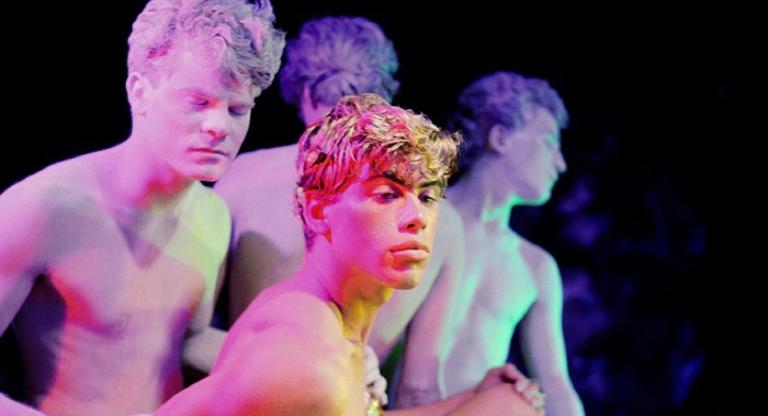
My Night at Maud’s has a special significance for me. Around the time I first saw it at Lincoln Center in 2011, I was rediscovering an old friendship that would become the strongest bond I had. Jean-Louis (Jean-Louis Trintignant) and Vidal (Antoine Vitez) are old friends who meet again by chance after a 14-year hiatus. A devout Catholic and an equally devout Marxist, they find common ground in discussing the thought of Blaise Pascal, a seventeenth-century essayist, mathematician, physicist, and public transit pioneer. (Like them, my friend and I discovered that for the past few years we had been grappling with the same existential questions in different ways. For us, a function similar to Pascal's was performed by Roland Barthes.) Because of this personal resonance, my memory of the film was distorted; I had completely forgotten about the character Françoise (Marie-Christine Barrault) and nearly even the titular Maud (Françoise Fabian). That I had dreamed up a film consisting entirely of Jean-Louis and Vidal’s initial conversation revealed my sexist disregard for the film’s female leads, both of whom are in fact more central than Vidal.
Jean-Louis is an engineer and spare-time mathematician, Vidal a philosophy professor, Maud a pediatrician from a “family of Freethinkers,” and Françoise a “blonde Catholic.” The two men run into each other in a café in Clermont (the birthplace of Pascal), and sit down to discuss their recent pasts. Their conversation soon lands on the famous Pascalian Wager: between two scenarios—a.) There is neither God nor eternal salvation, and b.) There is, and one must behave accordingly—we must bet everything on the latter, no matter what the odds against it might be, because of the finite risk and the possibility of infinite gain. This is how Jean-Louis justifies his faith in God and Vidal his faith in History—a transcendent and a secular source of meaning. Vidal invites Jean-Louis to Maud’s house, and the three pass the evening debating the respective positions of Christianity, Marxism, and liberalism on love and sin (love can’t be real unless it’s mutual, someone’s life can’t be evaluated by simply tallying their good and bad deeds).
Like Eric Rohmer’s other so-called Moral Tales, Maud’s is heavy on dialogue—not surprising considering that it's based on a televised interview, Entretien sur Pascal, which he had shot a few years earlier. In it, a Catholic priest discusses the thinker’s work with Brice Parain, a communist philosopher who had gone to Russia as a cultural attaché in 1925 and been hired by Godard to tell Anna Karina a story from The Three Musketeers in Vivre sa vie (1962). The interlocutors' positions are not directly transposed onto Jean-Louis and Vidal, and the interview is worth seeing in its own right.
In his review in Film Quarterly, Graham Petrie speculated that an American treatment of the same scenario would have been more cynical with regard to the characters’ motivations, their sincerely held principles being what makes them so foreign to American audiences. Superficially, the film is conservative in many ways—the chaste traditionalism of its hero, its unadventurous cinematography (by Nestor Almendros,who would go on to work with François Truffaut, Jean Eustache, and Terence Malick)—but by upsetting our expectations about the narrative function of its characters’ debates, it reveals the neglected potential of cinema to simply invite us into a conversation that can change our attitudes and thereby our lives.


